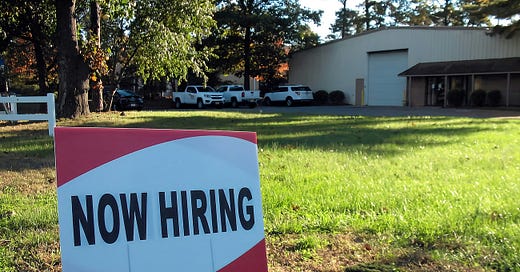THE SITUATION
With the Trump administration’s mission to “carry out the largest domestic deportation operation in American history”, The United States is expected to experience an increased labor shortage. About 8.3 million workers in the U.S. are unauthorized immigrants. By deporting these workers, the U.S. will lose an estimated 1.5 million workers from the construction industry, 1 million from hospitality, 870,000 from manufacturing, 460,000 from transportation and warehousing, and 220,000 from agriculture. How will these industries manage the incoming shortage of talent?
Only companies that can attract and retain new talent will be able to compete. Adopting fair chance practices can help companies offset some of these losses by tapping into an overlooked talent pool. Justice-involved individuals, or people with criminal records, are a source of largely untapped talent in the United States. The U.S. has the highest incarceration rate in the world, and 1 in 3 Americans have an arrest record. This group often has trouble returning to the workforce after their offense due to the social stigma and structural barriers to employment, and their systematic exclusion from the workforce ends up costing the U.S. up to $87 billion dollars in annual economic growth.
Fair chance, or second chance hiring, is a collection of policies and measures that employers can use to fairly consider job applicants with histories of arrest and/or incarceration. It is the belief that every candidate has a right to be assessed solely on their qualifications for the job, rather than their criminal record.
Fair chance hiring efforts can be as simple as removing questions about criminal history on job applications or as involved as training incarcerated individuals to start work after their release. Some companies ensure candidates that a criminal record is considered only if it is relevant to the job function. Others actively encourage applicants with an arrest record to apply and have internal hiring initiatives to recruit them.
OUR ANALYSIS
Fair chance hiring can benefit justice-involved individuals, employers, and society. Research shows that people involved with the criminal legal system have higher work retention rates than their peers. These individuals are less likely to quit and no more likely than their non-offending peers to leave due to misconduct. Unfortunately, misconceptions about their work ethic, as well as the actual application process, hinder their chances of employment. Not only does this hinder economic growth, but it’s also bad for public safety. Reentering the workforce significantly reduces risk of recidivism, so for many reasons we should encourage more of it, not less.
A 2018 study done on 1.3 million U.S military enlistees showed that those justice-involved were promoted faster and to higher ranks than their peers without criminal histories. 81% of business leaders also report that fair chance hires perform just as well, or better than their counterparts. By increasing fair chance hiring efforts, employers may develop a more loyal workforce, with lower turnover rates and higher productivity, effectively lowering their cost of capital.
Greater fair chance hiring efforts would benefit the overall economy and public. Providing justice-involved individuals with meaningful and stable employment would cause greater economic participation. A lower recidivism rate also means less taxpayer money is being spent on incarceration. In 2022, the annual cost to incarcerate a federal inmate was $43,000. Hiring the formerly incarcerated simultaneously helps them reintegrate into society and strengthens the economy.
FreeCap has closely tracked how companies are addressing this matter. In 2023, 98% of the largest 100 large-cap companies in the U.S. have diversity and inclusion efforts built into the company, yet only 10% have developed a training or hiring initiative for job seekers with criminal histories. However, these efforts are growing, as we have determined that fair chance hiring practices across the board have significantly increased in the past 3 years.
KEY TAKEAWAYS
Not only do fair chance hiring efforts assist in the rehabilitation of justice-involved folks, but risk of recidivism also decreases. It is also in companies’ best interest to actively recruit workers with criminal records, as it would create a more dedicated workforce and drive economic growth. Additionally, this approach may be able to offset the impending labor shortage from mass deportation. Policy makers must find ways to incorporate more fair chance practices in the hiring process, otherwise the economy will suffer the consequences.
Investors should keep these efforts in mind when deciding which companies to hold in their portfolios. Companies that support the fair chance hiring movement have access to a wider range of talent and are at less risk of labor shortage.
FreeCap uses four different metrics to identify companies’ efforts to recruit and retain justice-involved workers. We analyze companies hiring policies, diversity and inclusion efforts, background check protocol, recruiting programs, and overall support for criminal justice reform. In the following weeks, we will reveal the companies with the strongest fair chance hiring efforts, and how they connect with this pool of untapped talent.





